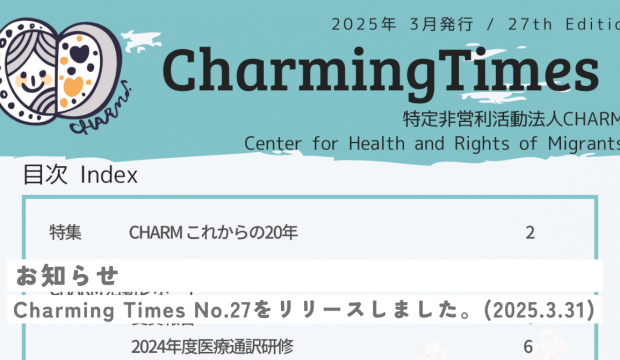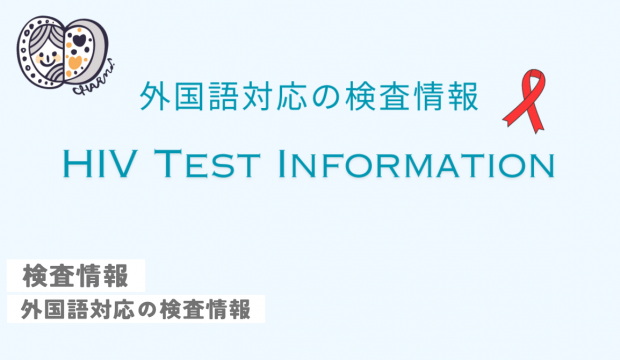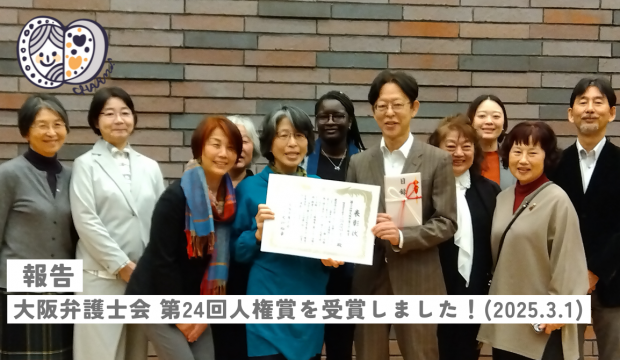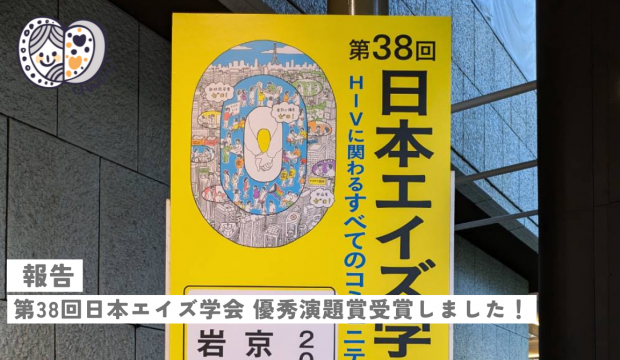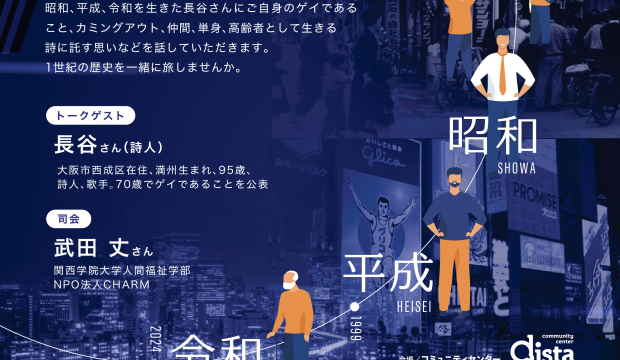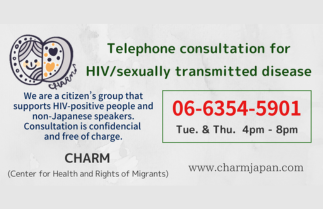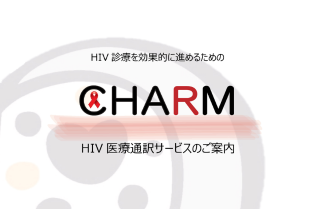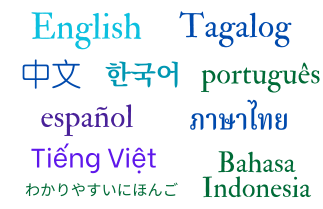前回のブログでは、社会的な隔離や差別のためにLGBTの人たちが直面している精神的な問題について話しました。今週は、トランスジェンダーの人たちが経験する医療と法律の問題とメンタルヘルスとの関係に焦点を当てます。
日本では、トランスジェンダーアイデンティティは「性同一性障害」と言われています。この用語はトランスジェンダーであるのは精神的な障害であるという意味が含まれます。「性同一性障害」とは医療的な意味の他に法律的な意味が含まれます。2003年の性同一性障害者の差別取り扱いの特例に関する法律よると、合法的にジェンダーを変えるためには、医者からトランスジェンダーであると診断を受けることが必要です。こうして、トランスジェンダーの人は自分らしい生き方を始めるために精神的に障害があるというラベルを張られることになります。この結果、トランスジェンダーの人たちは自分の状態を障害と認識し、あえて精神的ケアーを受けようとしないかもしれません。
バズフィードが去年出版した記事によると日本ではトランスジェンダーのスティグマを減らそうと活動する人たちがいる一方で、トランスジェンダーに付けられた「性同一性障害」の名称は悪い面ばかりではないと言う活動者もいると報告しています(1)。診断がつくことで、トランスジェンダーの人たちは認知され、社会に受け入れられるという面もあると言います。しかし、日本には「性同一性障害」という名称が差別的である考えるトランスジェンダーの人たちもいるかもしれません。
アメリカ社会で育った者として日本の性同一性障害の歴史や診断について知ったときには驚きを覚えました。トランスジェンダーであることは医師が診断するという意味ではアメリカより分かりやすいと思いますが、日本ではトランスジェンダーは「障害」とされるので、トランスジェンダーの人たちに対するスティグマが続くことになるかもしれません。アメリカの精神科のでは、LGBT権利擁護運動が「性同一性障害」というは良くないイメージがあるため、使用しないよう動きかけてきました。その結果数年前からこの用語は使われなくなり、最近では「性別不快感」を使っています。この用語は、性別不整合を精神病から分けます。用語の変更によりトランスジェンダーに対するスティグマが軽減されたと感じるトランスジェンダーの人たちや支援者がたくさんいます。
アメリカでもトランスジェンダーの人たちが差別を経験しない訳ではありません。例えば、医療を受けるとき、特に性別適合手術を受けるときにトランスジェンダーの人たちは問題に直面します。アメリカには全国共通の医療制度がないので、保険がない人がたくさんいます。ホルモン医療や性別適合手術を受けたいトランスジェンダーの人たちの中には医療保険に加入していない人が多くいます。ジェンダー関する療法は「必要ではない」と考える医療者や保険社会の人もいるので、トランスジェンダーの人たちが本当に必要としているケアを受けることができません。2015年にアメリカでトランスジェンダーの人達を対象に行った調査では、回答者の25%がトランスジェンダーであるということで医療保険が利用できないなどの経験があると答えました(2)。いくつかの州では、性別適合手術を受けないと法律的に性を変えることができないことになっているため性別の変更もできません。アメリカでもジェンダーに関しては、法律と医療的が複雑に関わっています。
世界の国々には、医療制度に様々な壁や問題があります。その問題から見えてくるのは、医療を受けにくい人々を支援するときに重要なのは、医療システムを理解すると同じように、医療を取り巻く社会的、文化的な現実の理解が重要ということです。これは医療にアクセスしにくい人々の権利について啓発する際に重要です。差別を直面している人は多くの場合精神的な支援を最も必要としているので、個人のニーズを良く聞き、良いより支援体制を作っていくことが重要です。
In the last blog, we talked about some of the mental health problems that LGBT people face as a result of social isolation and discrimination. This week, we will focus specifically on mental health for people who identify as transgender, as they face specific challenges within the Japanese health care and legal system.
In Japan, transgender identity has been referred to as “gender identity disorder,” a term that suggests that identifying as transgender is a psychological illness. This label has not only medical, but also legal importance. According to the 2003 Act on Special Cases in Handling Gender for People with Gender Identity Disorder, it is necessary to receive a diagnosis as transgender in order to legally change one’s gender. This means that for a transgender person to be able to move forward in life, they have to be labeled by a doctor as psychologically pathological. Consequently, people who identify as transgender in Japan may not receive the mental health care that they seek, as their feelings are considered to be a disorder.
An article posted on Buzzfeed last year reports that though transgender activists in Japan have been working to reduce stigma around transgender identity, some do not think that the label of GID is a negative thing (1). Rather, having the diagnosis helps some transgender people to feel more validated and accepted in Japanese society. However, I imagine that these feelings differ from person to person, and that many transgender people in Japan feel that the label of GID could be isolating.
Coming from the United States, I was surprised to learn about the history and diagnosis of gender identity disorder in Japan. On one hand, it seems much more straightforward than the process that people who identify as transgender in the U.S. must face. However, this approach also seems to perpetuate stigma against transgender people by labeling them as disordered. In the U.S., the term “gender identity disorder” has been taken out of psychological discourse for several years now, because activists felt that it had a negative connotation. It was replaced with “gender dysphoria,” a term that attempts to separate gender non-conformity from mental illness. Many transgender people and their allies believe that this change reduces the stigma around being transgender in the psychiatric community.
In the U.S., people who identify as transgender face different problems with regards to navigating the health care system, particularly when trying to undergo gender-affirming surgery. Because the U.S. does not have a national health care system, there are many people without health insurance. Many transgender people in the U.S. who hope to receive hormonal treatment or gender-affirming surgery are denied coverage because it has been considered “unnecessary,” which makes receiving reliable health care difficult. As a result, many transgender people in the U.S. are unable to receive health care that they may want or need. In a 2015 survey, 25% of transgender Americans reported experiencing problems with insurance coverage because of their identity as transgender (2). In addition, in some states, not being able to undergo gender-affirming surgery can impact one’s ability to change their legal gender. Because of this, legal and medical roles concerning gender identity are also entangled in the U.S.
It’s clear that different barriers and difficulties exist in different health care systems around the world. These differences underscore the importance of understanding not just health care systems, but also their cultural and social contexts, when advocating for marginalized populations. As marginalized populations often need mental health support the most, it is necessary to continue to listen to individual needs and work to create more supportive systems.
1. https://www.buzzfeed.com/lesterfeder/transgender-in-japan?
2. http://www.ustranssurvey.org/report


